Chris Redding's Blog, page 41
November 13, 2012
A Bridge to Treachery
Lou got to his knees and scrambled under the trailer toward Frawley’s body. He reached across him, for his carbine. Immediately, the police threw another fusillade of fire. Lou was caught in the middle of the searchlight beam. He scrambled back to safety behind the tire as bullets screeched around him, careening off the concrete in a shower of sparks, miraculously failing to ignite the gasoline. By the weight of it, he judged the magazine of the carbine to be almost full. Back toward the center of the bridge, the police cars were creeping forward. Lou crouched behind the front tire of Mack West, gathering his strength for a sprint. He got to his feet and plunged out into the darkness adjacent to the bridge railing. He pumped his legs with all of his strength. He saw the dark form of his drenched jacket in the roadway ahead.
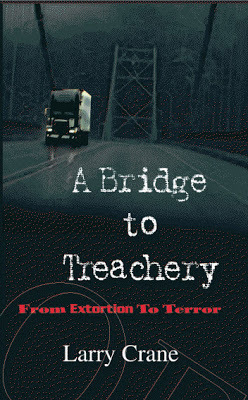
http://www.youtube.com/watch?v=nabX38...
The headlights of the approaching squad cars created angular shafts of light through the wheels, undercarriage, and stanchions of Mack East and the three-quarter ton full of napalm drums. He dove for his jacket, grasping the machine beneath it in both hands. He whirled the handle once; nothing. Then again, harder. Again. On the third twist, the center of the bridge seemed to heave up in a ball of yellow and crimson flame. A thunderous roar enveloped the bridge and sent shocks through the girders and the concrete surface, throwing Lou to his back.
Globs of thickened aviation gasoline arched through the night--clearing the overhead cables—and then plunged to the inky river below. The massive ball of flame slowly rose off the surface of the roadway and engulfed the cables and lights above.
Lou got to his feet and turned back toward the western end of the bridge, racing back toward Mack West. For nearly a full minute, the center of the bridge was aglow with intense seething light; yet no one fired at him. He went right to the truck, hugging the side of the roadway and the railing. The air in his lungs seemed to swell in his chest until he couldn’t catch his breath. And still no one fired.
Back in the shelter of Mack West, Lou sank to his knees behind the front tire. The entire bridge and the mountains on either side of the Hudson were lit by flaming napalm that now stuck to the overhead cables and slowly dripped in globs of orange flame to the roadway. He’d stopped them. He became aware of the pulsing, rug-beating throb of helicopter blades. He looked out to the north of the bridge and saw a military HU-1B hovering at the level of the roadway, its landing lights gleaming. Red lights flashed on the tail boom. He was receiving no fire. The cops must have been holding off to keep from accidently hitting the chopper or firing into their comrades closing in from the east side.
Slowly the craft moved forward, dipping its nose and gaining altitude. It ascended above the bridge, swinging back to the eastern side. Thirty seconds later, Lou heard throbbing directly overhead. The chopper hovered out in front of him, by the traffic circle, and descended to the ground. There was no firing. It was the perfect time to go.
He reached the end of the railing. Instinctively, he veered to the right, across the narrow strip of grass. He dove headlong into the underbrush, still holding the carbine. He crawled on all fours over roots and rocks and under bushes and low hanging branches that grabbed at his weapon and held him back. He reached the cut.

It was steeper than he thought. He started down the embankment on his rump, warding off boulders and stumps on his way down with his feet, but soon he began tumbling and sliding in a cascade of rocks and water. The pool at the bottom was not deep and it was no colder than the rain.
At first, it was absolutely black in the cut. Gradually his eyes adjusted, but there was no moon and no reflective surfaces to magnify what little light existed. He was shielded from the open ground a hundred and forty feet above him at the level of the bridge. He heard no sound except the splashing of water at his feet and his own deep breathing. The rain still came down steadily, unrelenting. For that he was thankful. It would mask all of his movements. There wasn’t much time. He didn’t know if they’d seen him dart off under the cover and confusion of the helicopter landing. The only thing to do was to strike out west, shielded from view until he was far from this place.
“Hello...” he heard from the other side of the stream. It was a half whisper. “Is it you?”
“Come over here,” he said softly. “Over here. I’m holding out my hand.”
He heard her stumble into the water and stifle a screech. Then his hand was holding hers; pulling her across. She rushed to him, clutched at his shirt, and wrapped her arms around him.
“You don’t look dead,” she said.
BLURB:
Former Colonel Lou Christopher is an ex-Army Ranger retired from the military and contentedly working as a New York investment broker. After being assigned a number of lucrative accounts and becoming accustomed to living the good life, he discovers there is a pay back. His former military skills are requested under a threat of losing everything he has.
Handed a group of misfits to assemble into a military strike team, he is coerced into leading the team on a mission of domestic terrorism. At the center of a bridge outside of Manhattan, his strike team is caught in the act and unexpectedly becomes engaged in a deadly firefight. It's then that he learns the mission was a political maneuver from the highest levels of the U.S. Government-and ultimately realizes he has been betrayed by his superiors. Learning his team was considered nothing more than collateral damage and intended to be killed and left as scapegoats, he uses his unique military expertise and engages in a fight for his life.
As the strike team is decimated, he and a female teammate elude the opposition forces to survive and escape, turning the tables on his superiors. Using his distinctive set of military skills, he now becomes the hunter and vows to extract his revenge and bring them all down.
BIO:
Transplanted to Maine mid-westerner Larry Crane brings an Illinois sensibility to his writing. Larry graduated from West Point and served in the Army before starting a business career on Wall Street. His writing includes articles for outdoor magazines, plays, short fiction, and his most recent thriller novel, A Bridge to Treachery. In his spare time, Crane is a hobbyist videographer for his local Public Access Television Station and is a volunteer at his local historical society. Larry and wife Jan live in splendid isolation on the coast of Maine.
ONLINE LINKS:
Twitter: https://twitter.com/#!/mainelarrycrane
Webpage: http://www.mainelarrycrane.com
Facebook: http://www.facebook.com/MaineLarryCrane
Goodreads: http://www.goodreads.com/author/show/...
Wattpad: http://wattpad.com/LarryCrane
Facebook: http://www.facebook.com/capenewagen?r...
Google+ https://plus.google.com/1021380205422...
Blog http://mainelarrycrane.blogspot.com/
LinkedIn https://www.linkedin.com/settings/?tr...
IAN: http://www.independentauthornetwork.com/
BUY NOW LINK:
Amazon: http://amzn.to/RmJQNl
Smashwords: http://www.smashwords.com/books/view/137163
Barnes & Noble: http://www.barnesandnoble.com/w/bridge-to-treachery-larry-crane/1101990028?ean=9781936587353
• Amazon paper book
• Amazon Kindle copy
Giveaway:
Rafflecopter
a Rafflecopter giveaway
If you cannot use rafflecopter here is a link Rafflecopter
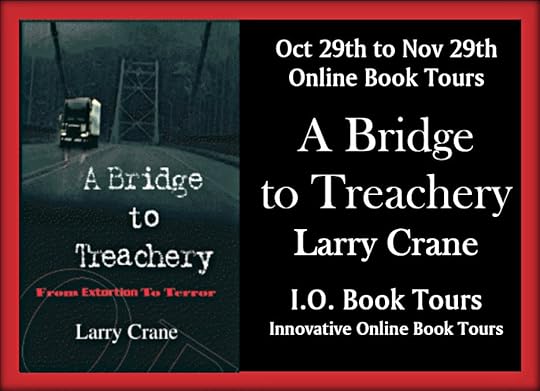
November 7, 2012
Authorsday: William Shepard
This was an early realization, and had to do with storytelling. Around a campfire, I was always engrossed in what a storyteller had to say. It almost seemed like magic. I had an uncle who was a gifted storyteller. He and my aunt had foster children, and when anyone misbehaved, the worst punishment was that the child was sent to bed, after dinner but with no story! That led to a fascination with storytelling, which only grew when I eventually realized that a writer could actually invent the stories being told! It was a new world.
How did you pick the genre you write in?The genre I write in, diplomatic mysteries, didn’t exist, so I invented it! The best advice that writers are often given is to write about what they know. I was a career diplomat for twenty-five years, and it struck me that a diplomat with a talent for sleuthing could span two cultures, solving crimes while his day job is at an American Embassy. It seemed crucial to write about places I had actually served in, for authenticity of background. That is why I have written about Bordeaux, Budapest, and now about a trip by the Secretary of State to six European capitals aboard Air Force Two. The genre grows and becomes more familiar with each book, and of course, continuing characters help weave the overall story together.
Describe your book.The first book in the series, “Vintage Murder,” is set in Bordeaux, Paris and Washington. Robbie Cutler, my protagonist, is assigned to the American Consulate General in Bordeaux, where I served as Consul General. The Basque terrorist ETA organization is beginning to terrorize the great vineyard owners of Bordeaux, and Robbie Cutler helps solve the puzzle of who is behind the killings that ensue. For readers who like a sophisticated mystery with more than a touch of old fashioned romance, this is an inviting beginning to the diplomatic mystery series.
What’s your writing schedule?I write in the weekday mornings, Monday to Friday, and often use the weekends to polish or expand what I have written during the week. My goal is one chapter per week. But to get that far, I first plot the entire book, in very general terms. That gives an idea where we are headed, and keeps the overall plot on track. After the first draft I polish the book, chapter by chapter, at least once, probably twice, or more for more compelling chapters. All of this takes perhaps 6-9 months. My wife then reads the book and gives an overall reaction, with particular attention to matters of continuity. It’s better to find out right then, that the store owner I had in chapter 4 aged 40 has mysteriously become 65 in the next chapter, which takes place the following week!
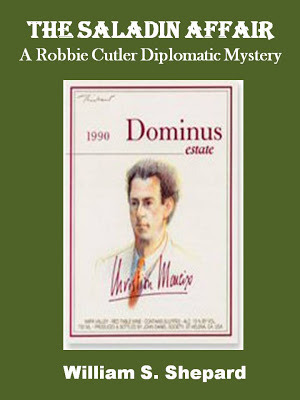
What authors do you admire?
Balzac is a great author who pushes emotions and events to their logical conclusion, which is often to extremes, and he is a master storyteller. He lived at a time when society was collapsing and reinventing himself. That may be why his plotlines are so contemporary, and why his characters are strangers to compromise. He would have been very comfortable, I think, with the plotlines of the television series “Dallas.” And Charles Dickens had a far ranging imagination. In “Nicholas Nickleby,” for example, he surfaces and leaves more plotlines than the average gifted writer could use in a lifetime! When, 150 years or so later, a poor person has the temerity to ask for “More, please,” everyone who is literate recognizes the reference. That is immortality for a writer.
What other time period besides your own would you like to experience?Tudor England, particularly under Elizabeth I, must have been a fascinating place, and terribly dangerous. It was a great age of discovery and travel, as England struggled to join Spain as a great power. I refer to this period several times, in the back story of the fourth diplomatic mystery, “The Saladin Affair.” The established religion in a generation became almost a badge of treason! The Tower was always ready to welcome those who weighed the shifting currents of power incorrectly. Yes, it would be fascinating to experience that age of adventure – but I wouldn’t want to have been a permanent resident there!
What do you do when you are not writing?We live on Maryland’s Eastern Shore, and I greatly enjoy crabbing. As a dinner treat with a chilled glass of good white wine, that’s a gourmet treat! We like to attend summer theater and concerts, and are regulars at the twice a year dinners of our local Sherlock Holmes Society. That’s probably where I got the idea to write some new Sherlock Holmes and Professor Moriarty adventures in my Ebook, “More Coffee Break Mysteries: The Sherlock Holmes Edition.”
What is the one thing your hero would do that you wouldn’t?In the fifth book of the Robbie Cutler Diplomatic Mystery series, now being written, Robbie volunteers for a TDY assignment in Afghanistan, tracking the Taliban. It’s uncertain at this point how he emerges safely, if he does. I had two assignments in wartime Saigon, but I doubt very much that I would have volunteered for Kabul (which I have visited, incidentally).
What was the hardest scene to write?In the second book of the diplomatic mystery series, “Murder On The Danube,” a wounded freedom fighter is packed off in a train towards Russia with other freedom fighters (this actually happened). Since he is in a surreal atmosphere, and sliding in and out of consciousness, I decided to write this chapter in stream of consciousness. It fit perfectly, the mood and perception of what such a person would have been going through.
What was your favorite scene to write?In the third book, “Murder In Dordogne,” Robbie is confronted with a former French Nazi named Dorlot, and must find out what he knows in order to advance his investigation. Dorlot keeps trying to drag Cutler into his perverse world, and Robbie must resist, while mining Dorlot’s memories to solve an actual crime. It was an enjoyable chess game, which advanced the plot colorfully and realistically.
William S. Shepard’s Series of Diplomatic Mysteries
Now residents of Maryland’s Eastern Shore, the Shepards enjoy visits from their daughters and granddaughters, fine and moderate weather, ocean swims at Assateague, Chesapeake Bay crabs, and the company of Rajah and Rani, their two rescued cats.
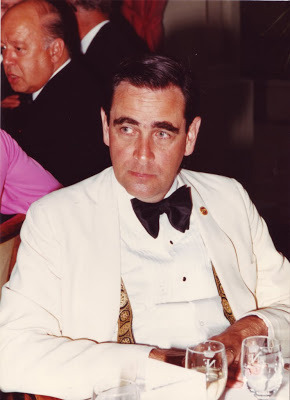
Prize winning mystery writer William S. Shepard is the creator of a new genre, the diplomatic mystery, whose plots are set in American Embassies overseas. That mirrors Shepard’s own career in the Foreign Service of the United States, during which he served in Singapore, Saigon, Budapest, Athens and Bordeaux, in addition to five Washington tours of duty.
His diplomatic mystery books explore this rich, insider background into the world of high stakes diplomacy and government. His main character is a young career diplomat, Robbie Cutler. The first four books in the series are available as Ebooks. Shepard evokes his last Foreign Service post, Consul General in Bordeaux, in Vintage Murder, the first of the series of four “diplomatic mysteries.” The second, Murder On The Danube, mines his knowledge of Hungary and the 1956 Revolution. In Murder In Dordogne Robbie Cutler and his bride Sylvie are just married, but their honeymoon in the scenic southwest of France is interrupted by murders.
The most recent of the series, The Saladin Affair, has just been released as an Ebook. Robbie Cutler has been transferred to work for the Secretary of State. Like the author once did, Cutler arranges trips on Air Force Two – now enlivened by serial Al Qaeda attempts to assassinate the Secretary of State, as they travel to Dublin, London, Paris, Vienna, Riga and Moscow!
November 6, 2012
Not Handy Morgan Mandel
There are some who can do anything they try to do. They sit in front of a piano, know exactly which keys to press, and magnificent melodies emote. I took lessons for about three years, and decided my talent consisted of repeating the same mistakes. I still put the piano to good use, as a place to store things.

What about painting rooms? Well I tried doing the hallway, got the paint mottled up and stopped before I could do more damage.
I try hard to be handy, and sometimes succeed, but at a price. One time, I managed to put a computer desk together at home. It’s still sitting in the spare bedroom, a little wobbly in one of the drawers, but all-in-all it looks pretty decent. Unfortunately, the instructions said not to use an electric screwdriver, since that would be bad for the fake wood. So, I painstakingly used a manual screwdriver. My palm got pretty sore and red, but I figured the effects would eventually go away. Wrong. It took surgery to remove a ganglion cyst, my souvenir of that do-it-yourself venture. If only I’d known ahead of time, I’d have hired someone to assemble it, saving myself medical costs and pain. It didn’t take long before I bequeathed that desk to the DH and bought myself a new one, already put together, which I put in the dining room, which we never use as a dining room.
Then there’s my iPhone. I successfully managed to install the first few updates, with trepidation, but they went okay. Then, on a certain loop I’d heard about dire results with IOS 5. That’s all I needed to hear. I put off installation as long as I could. When my extended warranty amost ran out, I bit the bullet, called technical support, got instructions, and lo and behold, I did it right! That was a relief. Well, now there’s an IOS 6 to install, and I have no extended warranty left. Maybe I should just buy a new phone and solve the problem. I’m deathly afraid of screwing it up and losing my photos and other stuff I can’t live without.
Now there’s the running toilet at our cottage. No, it doesn’t have legs, though it may as well have them. Despite replacing the inner workings in the tank, which we hired a friend to do, the water still runs after we flush. The DH and I are tired of turning the shutoff valve every time we use water in the bathroom. Did I mention he’s not very handy either? Next trip to the cottage we’re hiring a plumber.
You might say our running toilet is the inspiration for Her Handyman, my new romantic comedy release on Kindle at http://amzn.com/B0097EVXBK. At least in fiction, if not real life, someone’s handy!
What about you? Are you handy? Do you have any good or bad experiences you’d like to share?
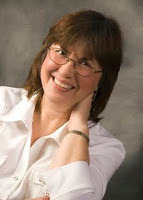
About Her Handyman:
It's Jake, the handyman, who needs rescuing when he comes to the aid of the rich, quirky artist, Zoe, and her overflowing toilet and crazy canine, FuFu. Watch out, Jake! You’re in for a fall in more ways than one!
About Morgan:Morgan Mandel lives in a Chicago suburb with her husband, commonly known as Good Paul, and their loveable pit bull, Rascal. She’s not ashamed to admit her vices: chocolate, ice cream, pizza and a great love of slot machines. Her favorite pastimes are reading, writing, going to garage and rummage sales, attending festivals and watching romances and mysteryies on TV and DVDs.
Her Handyman is Morgan’s fifth book. She’s also a contributor to a short story collection. For Excerpts & Links to Morgan’s Books, check http://morgansbooklinks.blogspot.com and her Amazon Author Central Page at: http://amazon.com/author/morganmandel.
November 5, 2012
ExcerpTuesday: William Doonan
Archaeologists Jila Wells and Ben Juarez are not thrilled at the prospect of returning to Peru; the ambush that nearly cost Jila her life still haunts her. But the ruined pyramids at Santiago de Paz hide an important document that would shock the Islamic world. Professor Sandy Beckham is assembling a distinguished team to dig quickly through the pyramid complex, following clues found in the diary of a wealthy Muslim woman who lived in Spain five centuries ago.
In the diary are details of an illegal expedition to Spanish Peru in three well-armed ships. Convinced that Spain was forever lost to Islam, Diego Ibanez intended to bring the word of Allah to the pagan Americans. Landing on Peru’s north coast, he learned that the fires of the Inquisition burned even hotter there than they did in Spain. As the archaeologists brace for the ravaging storms of El Niño, Jila and Ben hurry to complete their excavations. But they’re not the only ones interested in this project. Other forces are determined that the document remain hidden. Should it be discovered, a challenge could be made under Islamic testamentary law to the throne of Saudi Arabia. And the House of Saud has no interest in sharing power with an American caliphate that might now awaken from a five hundred year slumber.
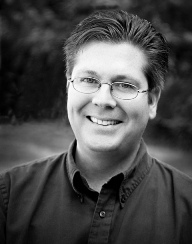
Bio:
William Doonan is an archaeologist and mystery writer living in Sacramento, CA. His archaeological mystery American Caliphate was published in April by Oak Tree Press.
Amazon.com http://www.amazon.com/American-Caliph...
Doonan also writes a mystery series featuring an octogenarian detective who investigates crimes on cruise ships. Grave Passage was published in 2009, Mediterranean Grave in 2011, and Grave Indulgence in 2012. Currently, I’m halfway through the first draft of Aleutian Grave. http://www.amazon.com/Grave-Indulgenc...
12 million people take a cruise each year.
Most have fun.
Some die.
Henry Grave investigates.
November 4, 2012
Free Books
Free for 2 days only: Saturday 10 November 2012, Sunday 11 November 2012
Amazon.com
http://ow.ly/epAR1
Amazon in the UK
http://ow.ly/euQLf
Whispers in the Dark Kris Bock
http://www.amazon.com/dp/B006M6P6FA
free November 9-10
October 31, 2012
Dangerous Affairs by Diana Miller
by Diana Miller
~~~~~~~~~~~~~
BLURB:
When soap opera star Abby Langford leaves Los Angeles for her Minnesota hometown, she’s hoping to give her nine-year-old daughter the peaceful childhood she never knew. But instead of tranquility, Abby finds an old knife hidden between the walls of her new house. Then the nightmares start: a blood-soaked victim and a killer’s arm slicing through the air, again and again.
Abby wonders if she’s having the nervous breakdown the tabloids claim she already had, especially when sexy, skeptical police chief Josh Kincaid questions her story. When menacing hate mail arrives, Josh’s professional concern for Abby soon evolves into an intense attraction, and the feeling is mutual. And now Josh wonders if her psychic visions are of crimes past—or a premonition of terrors to come.
To survive, Abby and Josh must uncover the truth and stop a killer . . . before Abby’s worst nightmares come true.
~~~~~~~~~~~~~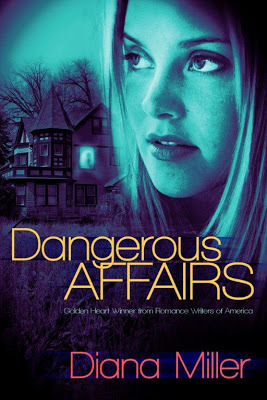
Excerpt:
The doorbell rang, shooting a fresh blast of cold panic through Abby. She opened her mouth, but swallowed her scream—it had to be the police. Bad guys didn’t use doorbells. She unlocked and opened the front door with frozen fingers.
Josh was standing on the front porch, dressed in black jeans and a burgundy polo shirt, his hand on the doorjamb and his eyes narrowed. “What’s such a damn emergency?”
“I got another message. From the person who hates me.”
Josh expelled a clearly exasperated breath, running his fingers through his dark hair. “Look, I know I told you to take the letters seriously, but since the mail carrier delivered it hours ago, this isn’t exactly an emergency. Bring it to the station tomorrow. I’d like to get back to my date.”
“It didn’t come in the mail this time.” Abby’s voice rose an octave, her words tripping over each other. “It’s on my bathroom mirror, written in lipstick. Someone got into my house, and they could get in again.” She sounded half hysterical, but she couldn’t help it. This was in a different category from her normal hate mail.
Josh stepped into the house, closing the door behind him. “You were gone tonight?”
She slumped against one wall of the foyer, hugging herself and struggling to regain her control.
“Maddie and I were at a birthday party for Laura’s youngest son. At Pizzaville. We got home around nine thirty, and I put Maddie to bed. I read in the family room for a while, then went back upstairs. And found it.”
“Show me.” Josh grabbed her forearm and directed her up the stairs.
The message was short and to the point, capital letters written in red lipstick on the wall-size mirror:
LEAVE OR DIE BITCH. FROM YOUR BIGGEST FAN
~~~~~~~~~~~~~
AUTHOR Bio and Links:
When she was eight, Diana Miller decided she wanted to be Nancy Drew. But no matter how many garbage cans she dug through, conversations she “accidentally” overheard, and attics she searched, she never found a single cryptic letter, hidden staircase, or anything else even remotely mysterious. She worked as a lawyer, a soda jerk, a stay-at-home mom, a hospital admitting clerk, and a conference host before deciding that the best way to inject suspense into her otherwise satisfying life was by writing about it.
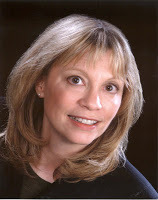
Diana is a five-time nominee for the Romance Writers of America Golden Heart Award and winner of a Golden Heart for Dangerous Affairs—a romantic suspense novel that shows not everyone in her home state is Minnesota Nice. She lives in the Twin Cities with her family.
My website link is www.dianamillerwriter.com. I have buy buttons for both Amazon and Kindle on my website, but have no idea what you have to do to insert them since my web designer did it.
The URL for my Amazon page is: http://www.amazon.com/Dangerous-Affairs-Diana-Miller/dp/1612186017/ref=sr_1_1?ie=UTF8&qid=1339532353&sr=8-1
October 30, 2012
The Best Writing Advice by R. T. Wolfe
Thank you, Chris, for having me on your wonderful blog today. Happy Halloween!
The Best Advice Anyone Ever Gave Me and Why.The best advice anyone ever gave me was to publish my work. I’d never thought of publishing. It’s not why I started writing.

I am a writer. I write because I can’t not write. The creating, the research, the editing, the revising…I love every part of it. I call it my crack cocaine. I have no recollection of sitting down and typing out the first few lines of Black Creek Burning. A few lines turned into a few pages that turned into a few hundred pages. I was in a tunnel of focus for months. When I came out the other end, I had a completed romantic suspense in my hands (or on my flash drive).
I copied the novel at a local Kinko’s and had them tape bind it. There, I thought, I have a book. I gave it to a friend to see if it made any sense. She read it in one day, then gave it to a friend who gave it to another friend…in a few months time I had a small army of readers who mutated into pushy, hounding, persistent nags ordering me to submit. I’m so lucky to have them!
Writing is still my first love, but the feel of having a reader buy my work and leaving me a thoughtful comment is something I can’t accurately describe. My favorite is the mom who left a message on my contact form telling me her kids had to eat frozen pizza for dinner because she couldn’t put my book down. Or when readers message me to tell me they cried at this part or at that scene. I love it.
By the time I was partially through Black Creek Burning, it turned itself into a trilogy. I’d hardly put Black Creek Burning aside before To Fly in Shadows starting pouring out on my keyboard with Dark Vengeance following close behind. Publishing is a crazed world. I can’t believe I’m here and am thankful for the advice I was given to get me here.
Black Creek Burning
By
R.T. Wolfe
BLURB:
Brianna Chapman learns to handle just about anything. Witnessing the murder of her parents had that effect. Knowing the unsolved arson had been meant for her isn’t as easy to overcome. Instead, she stuffs her guilt soundly into her subconscious through diving into the teaching job she loves by day and the dirt of the landscaping business she owns by night. Her habit of remaining aloof to personal relationships is, well, working.
Will her guilt be as easy to keep buried if the killer comes back to finish the job?
In the midst of juggling a scorched yard, dead animals on her doorstep and her vandalized car, the one thing she didn’t count on was the staggering Nathan Reed. A nationally renowned woodworking artist, Nathan and his two priceless nephews move into the run-down historical house behind her and over Black Creek. They have a canny way of maneuvering around her aloof demeanor and into her heart. Will they still want to be part of her life when they discover she is haunted by past memories and hunted by present dangers?
SHORT EXCERPT/CHAPTER ONE
As she meandered up the path to their house, she felt queasy, like she’d done this before. Nervously, she glanced over her shoulder through her mass of wavy brown hair as she kept moving toward the front door. Two people were walking along the street. She stopped and wondered what reason anyone would have to take a walk at this time of night in such an early bird neighborhood.
It was then she heard the shrill of the smoke detectors. Chest tightening, she bolted for the door.
“Mom! Dad!” she screamed and tumbled inside, spotting them almost immediately as they ran down the long upstairs hallway.
Not again. Please not again, she begged, as she fought her frozen legs to make them move up the stairs. The smoke detectors shrieked in her ears. Or was that the shrieking coming from her lungs? Her parents yelled her name as they reached for the bedroom door. She couldn’t stop gasping for air long enough to tell them to stop. She wasn’t in there. Didn’t they know? They needed to get out of the house. Couldn’t they smell the smoke?
Just like each time, her viewpoint from the middle of the stairs showed her the yellowish air sucking under the door to her bedroom. Although trying to use the railing to give her momentum, every part of her felt like it was in molasses. She cocked her head to the side, drawing her eyebrows together. Her gaze locked on the eerie breeze.
Almost simultaneously, her mother rotated the knob as her eyes turned and met hers. For that fraction of a second, her mother understood the fear on Brie’s face, but it was too late. It was always too late. As she opened the door, Brie had just enough time to witness her parents engulfed in flames before the explosion blew her back and everything went dark.
* * * *
“Brie, wake up. Wake up, Brie. You’re dreaming.”
R.T. was born and raised in the Midwest, the youngest of six children. She married at a young age and decided early on she wanted a family herself. With three small boys in tow, she and her husband flipped two houses with R.T. in charge of the landscape design and install. Now, she is rooted in the final home they designed inside and out.
Now that her boys are nearly grown, R.T. spends much of her time on the road traveling from one sporting event to another serving as mom and cheerleader. When at home, she enjoys Pilates, working with her Golden Retriever and digging in the glorious dirt of her landscaping plots.
During one of many busy and restless nights, R.T.’s first novel began to pluck its way onto her laptop. It was a drug, an instant addiction that only grew with time. Moments borrowed and stolen at her laptop are, now, between all of the travel and work and many of those busy, restless nights. After several edits, revisions and versions later R.T.’s first novel, Black Creek Burning, will debut September 24th.
LINKS:website: http://www.RTWolfe.com
Twitter: http://www.twitter.RT_Wolfe (that's an underline, not a space)
Facebook: http://www.facebook.com/RTWolfe2012
Goodreads: http://www.goodreads.com/book/show/15776211-black-creek-burning
October 28, 2012
Free Books
Free for 2 days only: Thursday, 1 November 2012 and Friday, 2 November 2012
Amazon.com:
http://ow.ly/ek0Cq
Amazon UK:
http://ow.ly/dskgK
October 24, 2012
Authorsday: Mary Reed and Eric Mayer
EM To me writing means making up stories and I was doing that long before I learned the first letter of the alphabet. My grandfather used to supply rolls of adding machine paper on which I drew epic adventure stories, mostly involving animals with guns and bombs. Lots of murders, no mystery.
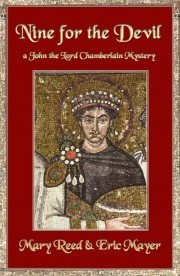
3. How did you pick the genre you write in?
MR: As far as the novels are concerned, we both enjoy reading about various historical periods and would probably have chosen historical mysteries in any event. However, we were pointed to the Byzantine era when Mike Ashley, master anthologist, rang up one afternoon and asked us if we could write a short story at very short notice -- about three weeks or so -- for an anthology he was editing. Eric being interested in the Byzantines, there was plenty of research material on the bookcase and the rest is history, no pun intended.
4. Do you plot or do you write by the seat of your pants?MR: I would far rather just sit down and start typing but writing requires discipline, so we produce an outline from which to work. It's helpful both to our editor, who is able to provide suggestions for tightening the plot line, and to us when writing the novel, since we have a set of skeletons on which to hang the encrustations that flesh each chapter out regardless of who does the first draft.
7. What was the name of the first novel you wrote? Did you try to publish it?EM: The Body in the Reentrant. It was set at an orienteering meet. Mary and I had written several short stores about our sixth century Byzantine detective, John, Lord Chamberlain, and wanted to give him some elbow room in a novel. Since I'd never written anything longer than a short story I felt I needed to stretch out with a practice book. I chose an orienteering setting because I was involved with the sport so it was easy for me to write about. We have never made any particular effort to get it published. We immediately went on and wrote One for Sorrow, which Poisoned Pen Press brought out in 1999.
9. How many rejections have you received?EM: I have no idea. When I first seriously attempted to sell my writing I figured I'd keep track. After six rejections I sold an essay. That seemed pretty good. Forty rejections later I decided keeping records was for the birds and I never have since!
12. Why did you pick the publisher that ultimately published your book?MR: Poisoned Pen Press had only just been founded when they were nominated for an1998 Edgar for their non fiction A-Z Murder Goes...Classic. We sent a note of congratulations and asked if they intended to also publish fiction. It happened that editor Barbara Peters had not long before been musing on the fact that no Byzantine mysteries had appeared, so it was a case of the right query at the right time -- and underlines my theory that Fortuna often plays a part in publishing, as with other ventures. Thus it came about that One For Sorrow, John's first novel-length adventure, was the first fiction Poisoned Pen Press published.
20. What’s your favorite quote?MR: They change often but currently it's from the X-Files episode entitled Jose Chung's Doomsday Defense, in which the titular character observes "Unlike profiling serial killers, writing is a lonely and depressing profession". I do not find it so myself, but the sentiment makes me smile.
24. What place that you haven’t visited would you like to go?EM: I've never been to Constantinople despite all the time Mary and I have spent roaming its alleys and palaces in our minds. So I'd love to visit Constantinople (not Istanbul) which doesn't exist any longer. I'd need a time machine.
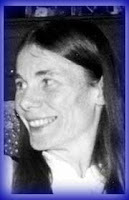
29. Who is your greatest cheerleader?
EM: Mary. I don't feel I have much of a knack for fiction. She had to drag me kicking and screaming to co-author our first mystery story (The Obo Mystery, published in Ellery Queens Mystery Magazine) and with every new book she has to, how shall I put it? Kick start me.

30. What would you like to learn to do that you haven’t?
MR: To drive and to read Latin and Greek!
October 23, 2012
Writing as Community
Depression is a narcissistic and solitary game. All too often, failure is too. One of the most surprising revelations that I had when I was a new community college professor was that when people dropped out it usually wasn’t because they were too poor or busy, and it wasn’t even because they were intellectually inferior.
People drop out of college because they feel that they don’t belong.
It’s the same reason people drop out of sports teams, musical bands, churches, and marriages. Not surprisingly it also the reason that people stop writing.
Now, after having taught at the community college fulltime for fifteen years, I’ve realized that one of the most important parts of my profession is helping to foster that feeling of belonging. I do it with my new students who have just transferred into college, but I also do it with my creative writing students.
We writers often have the romantic notion that we should be solitary artists apart and above the rest of society, peeking in and commenting on it, but that’s an incredibly foolish way to conduct your life for three important reasons.
1. Seclusion leads to narcissism which leads to depression. If the only thing you are focusing on is yourself, you are going to start wondering why you aren’t as successful as you might have been. There is no way to be so successful that you can outrun this kind of self-doubt. Once you enter this kind of depression, you can say goodbye to your writing. 2. Writers need to be a part of society, not apart from it. We need to write about real people doing real things, and there’s no way to do that unless you are actually taking part in life and soaking up other people’s stories. 3. Other people’s excitement about their writing will get you focused on your own writing. Spending a few hours with writers who are dedicated and interested will infuse you with the kind of energy you need to come home after work, cut out the distractions, and just write. These do not have to be Ernest Hemingways and Stephen Kings. They just need to care about art and craft.
I’ve had a number of students go on to MFA programs or go on just to be writers. The most successful of these have created community in a couple of key ways.
The first is that they have been a part of the writing community of Los Angeles, which is where I happen to live. Los Angeles isn’t the important component here, the community is. Just about every part of the country, whether it is urban or rural has a fascinating and vibrant arts community. You just have to look.
The second is they have formed their own critique group of four to seven writers who are interested in coming together once a week or once a month to talk about where they are, what they have written, and where they should be going.
Staying focused is often as simple as staying social. Depression might be narcissistic and solitary, but art should never be.




